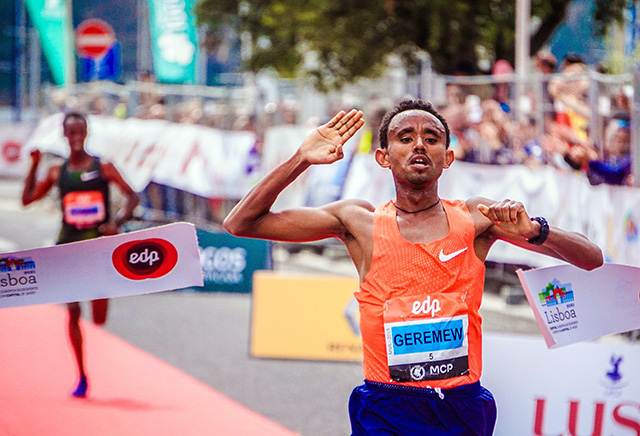The food and fluid intake of marathon runners has come a long way in the last 100 years, rat poison and alcohol during the race are not recommended anymore. Here is a list of more current nutrition strategies for marathon runners. These are just some food for thought ideas. For demanding running events such as the marathon it is important to get the right advice for maximizing performance. Seek the advice of a sports nutrition expert for an individualized nutrition program, if you are unable to meet your goals easily, or want specialized advice on supplement use.
- Vary energy intake between training phases according to the training load. Maintain adequate energy availability
- Consume moderate-high levels of carbohydrate according to the fuel needs of the training phase
- Consume fluids and carbohydrate during prolonged training sessions to support hydration and fuel needs
- Consume nutrients after training sessions to target elements of recovery – this includes fluids and electrolytes for rehydration, carbohydrate for refueling and a source of high-quality protein (20-25 g) to promote muscle adaptation
- Set safe and achievable physique goals for training gradually, with major effort during the base phase and fine-tuning just prior to the racing season.
- Prepare for competition with carbohydrate fueling techniques suited to the fuel needs of the event. For events lasting longer than 90 minutes, consider carbohydrate loading over the 2-3 days prior to the race.
- Choose a pre-race meal that promotes additional fueling but leaves the gut feeling light and comfortable for the race
- Develop a plan of eating and drinking during the race to maintain adequate hydration and additional carbohydrate depending on the fuel needs of the event. Carbohydrate goals may range from small frequent “tastes” during brief events (45-75 min) to aggressive intakes of up to 80-90 g/h in ultra-endurance races (> 2.5 h). Practise the plan in training to perfect it.
- Consider the use of sports foods and supplements carefully: options include caffeine, sports gels/bars/drinks.
- Look after special needs for specialized training phases such as altitude training. This may alter the energy and fuel needs, fluid losses and iron requirements.
 Using nutrition to maximize performance
Using nutrition to maximize performanceRemember, for an individualized program to achieve the best results, see an accredited sports dietitian.
Related Pages
- Nutrition for Marathon Runners
- Nutrition notes for an ultra-endurance event
- Nutrition for Endurance and Adventure Sports
- The History of Nutrition and the Olympic Marathon
- Fluid and Fuel Considerations for a Fun Run
- Hydration in Sports
- About the marathon running event
- Marathon Major Events


 Current Events
Current Events